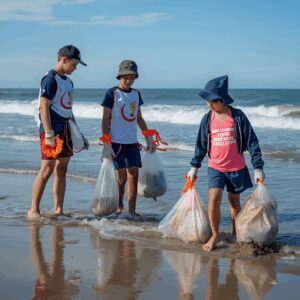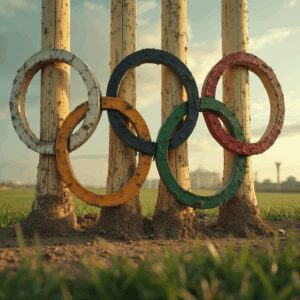Changed approach to sport in SVG urgently needed Part II
In the previous edition of this Column, dated 23 August 2024, we paid attention to sport and education, sport institutions and sports personnel as critical components of a changed approach to sport in St Vincent and the Grenadines, if we are to consolidate whatever gains we have thus far achieved and use this as the foundation upon which to move forward.
The path ahead is onerous and all the more so because the current climate in which we live is decidedly political and incredibly prejudiced.
There is an unhealthy, fallacious belief that it is easier to get things done together, and in the nation’s collective interest, if the country is small. That is far from the truth and there is abundant evidence to prove otherwise.
St Vincent and the Grenadines is a micro society, not just small. What we have witnessed over the years is our incredulous resistance to change. We have consistently proven ourselves incapable of confronting the truth of our history and an annoying refusal to acknowledge that we remain classic examples of the ideal product of slavery and colonialism, in almost every aspect of life.
A people who do not know their history and resists every opportunity to find truth about themselves in and through that history will forever remain lost. This is the reason who are where we are today in all aspects of Vincentian life and why there remains a pathetic brain drain from our country.
Over the years, we have had a strong desire to convince ourselves that we love sport and that we are a sporting nation. Equally, successive government administrations have filled their respective election manifestos with platitudes of our sporting potential, if only because of their interest in the youth vote. They tout the opening of every sport facility, regardless of the absence of any consultation with those who possess the relevant knowledge, competence and experience, to say nothing of its location, authenticity and maintenance after construction.
Additionally, it is on record that government officials, over the years, have sought to align themselves with whatever sporting successes have been achieved by our athletes, if only because, yet again, such an alliance would perhaps garner votes. The most recent example is the alignment with Shafiqua Maloney’s earning a place in the women’s 800m final in Paris, France, a few weeks ago. This latest alignment may continue for a few more months, especially since general elections are pending.
There is also an assumption that since we are not all students of history, we are even less students of the nation’s sporting history and that the lovers of sport will not remember anything of the past. Of course, there may well be reason to suggest here that this is because of our legacy. We believe that our people have short memories and that leaders need only make loud proclamations about their own view of history to have it made legitimate. Evidence is the first Independence address of Prime Minister Gonsalves, where the content, may well have left many believing that this country had no history between 1984 and 2001.
What happens in sport is what happens across the board in St Vincent and the Grenadines.
Physical Sports Infrastructure
A few months ago, this country hosted some matches in the most recent edition of the International Cricket Council’s (ICC) T20 World Cup. With elections pending, the government boasted of the amount of money it was spending on the upgrading of the facilities at Arnos Vale. But in proclaiming the expenses for sport, some attempts appeared to have been made to link this to the broader development of sport in the nation. Unfortunately, however, no mention was made of the wasteful expenditures of 2005 – 2007 when the same government proclaimed excessive expenditures on the same Arnos Vale sports facilities, in addition to those at Sion Hill and Stubbs. Perhaps the administration feared some recrimination for the abject failure to maintain the facilities at Arnos Vale during the period since the hosting of some’ goat cook’ matches in the Cricket World Cup of 2007. Clearly, it must have been taken for granted that our people would not remember this piece of our history, because they would have been swooned by the presence of lights and ‘party pools’ this time around. That may well have been their understanding, if not intent.
While one understands the eagerness to impress the international community with the major changes at Arnos Vale in time for the T20 World Cup, the approach reflects the apparently unquenchable thirst for scoring cheap political points. An astute analysis may well suggest that the ‘song and dance’ to have people come out to ‘see lights’ at Arnos Vale, ahead of the commencement of the World Cup tells it all. We were made into children receiving sweets for the first time.
We produced ‘pools’ that were hardly ever used by Vincentians. It is not our culture and perhaps never will be.
The repairs to the cricket arenas at Arnos Vale failed to engage any of the other sports that were accustomed to using the facilities in any sort of consultation as to what would happen to them in terms of access to sporting infrastructure in the future. But this is consistent with h ow things are done. It is a sort of twisted political strategy that we have come to expect.
There is a consistent failure, by those in authority, to understand that while they may like the sport of cricket, they have watched it lose its pride of place as the sport of choice by the majority of youths in St Vincent and the Grenadines. The local game is lacking patronage by the sport-loving Vincentian public.
There is an apparent unwillingness to acknowledge the sports that have been providing the nation’s nest results for more than the past two decades and still find themselves woefully deficient in terms of sporting infrastructure.
A stadium has been under. Construction since the electioneering of 2020. The track and bleachers have been in place for two years but as yet there is no one designated responsible for the day-to-day management of the facility at Diamond. The two major turns of the track continue to suffer from collection of water after rains and the formation of moss that discolours the surface and threatens the sustainability of what was originally laid.
At one point the impression was. Being given that the now deceased Dyke Cato, was earmarked to fill the position of being the administrator of the facility at Diamond. The understanding, however, was that Cato was not trained in Facilities Management and neither was anyone else that we have been told about. The Stadium Committee appears to have no role in the Diamond Facility and hence, its members may well have difficulty explaining their engagement in said committee. In any event, it has been repeatedly made clear that the Diamond Facility remains under the Ministry of Planning, apparently until it is transformed into the national stadium that it is intended to be, at some point.
There is an urgent need for an annual evaluation of the synthetic surface by the track’s producers to ensure sustainability.
There is an urgent need for a training facility of a similar surface so that the competition track is more sparingly used and allowed to retain optimum condition.
Decades of lamentation by the sports that should ideally be practised and played in Indoor facilities have led to nothing, not even mention at any significant level by those in authority.
One of the nation’s most popular sports, Netball, has been calling for an indoor sports facility for decades and its appeals still go without attention. The same can be said of basketball, volleyball, and table tennis.
Boxing, easily one of the sports that placed countries like Cuba, amongst the best in the world in sporting performance, has been without a home and anywhere to even train consistently with equipment stored and easily accessible, has virtually died.
Only squash and gymnastics have been able to benefit from indoor access as they should but far from what is required. Squash is on the Olympic sports programme for the Games of 2028 in Los Angeles, California, USA, but there is no sign that the local association will benefit from any expansion of facilities or creation of new ones to allow those interested in the sport from benefitting any time soon.
Gymnastics has benefitted from the gift of the former Mustique Airways hangar at Arnos Vale to the Dolphins Club, by its owners.
The government has adopted a novel approach to sport infrastructural development where ‘development’ can readily be called into question. No one seems to know the criteria used to determine which sport infrastructure will be constructed, lit and maintained by the National Lotteries Authority and which would be retained by the National Sports Council. No rationale has ever been given for the seemingly disparate decisions that have been taken in this regard, especially since it seems to run contrary to the fundamental intent and mandate of the National Sports Council Act.
Financing Sport
There is no official policy on the part of governmental authorities in respect of the financing of sport. The best evidence of this is what has been presented above regarding sports infrastructure in St Vincent and the Grenadines.
A cursory glance at past national budgets approved by the Parliament reveals an abysmally poor picture of the government’s commitment to sport. Indeed, recent history has the ridiculous reality of the National Lotteries Authority borrowing money, $6.5m, from the National Insurance Services in the lead up to the general elections of 2015, ostensibly to engage in the development of sports infrastructure.
National sports associations find themselves heavily cash strapped as the traipse around the country seeking to eke out support from an already over-burdened private sector and well-meaning individuals.
Some sports attempt to have financial contributions made by parents of their athletes in an effort to keep the sport alive and capable of having the athletes do well enough to gain national representation at regional and regional competitions.
The one area where the government consistently assists national sports associations is in the provision of duty free waivers for equipment used by athletes for training and competition.
Despite the continued declaration that support for sport is one of the mandates of the National Lotteries Authority, few national associations can boast of receipt of monies following their submission of applications for assistance through the National Sports Council.
National sports associations have repeatedly called for public declaration of assistance provided to sports in St Vincent and the Grenadines by the Lottery on an annual basis. The Lotteries Authority is not a private organisation and if its mandate is to support sport, at least in part, there should be some accountability that allows the Vincentian public to know just how much is committed to the cause, annually.
Conclusion
Sport in St Vincent and the Grenadine sis one of the major areas of activity that offers hope to our children and youths.
The very nature of sport allows for meaningful and sustained engagement of youth in activities that allow for the nurturing of their talents and the opportunity to build character, communities and the nation.
Investment of a country in sport is an investment in the nation’s future. Success brings international recognition and acclaim.
The government and the National Lotteries Authority should allocate a specific percentage pf their respective annual budgets to sport and sporting organisations to contribute to the genuine development of the discipline.
It is time to stop the idle talk about sport and start allowing it to take its rightful place in genuine nation building and development.






